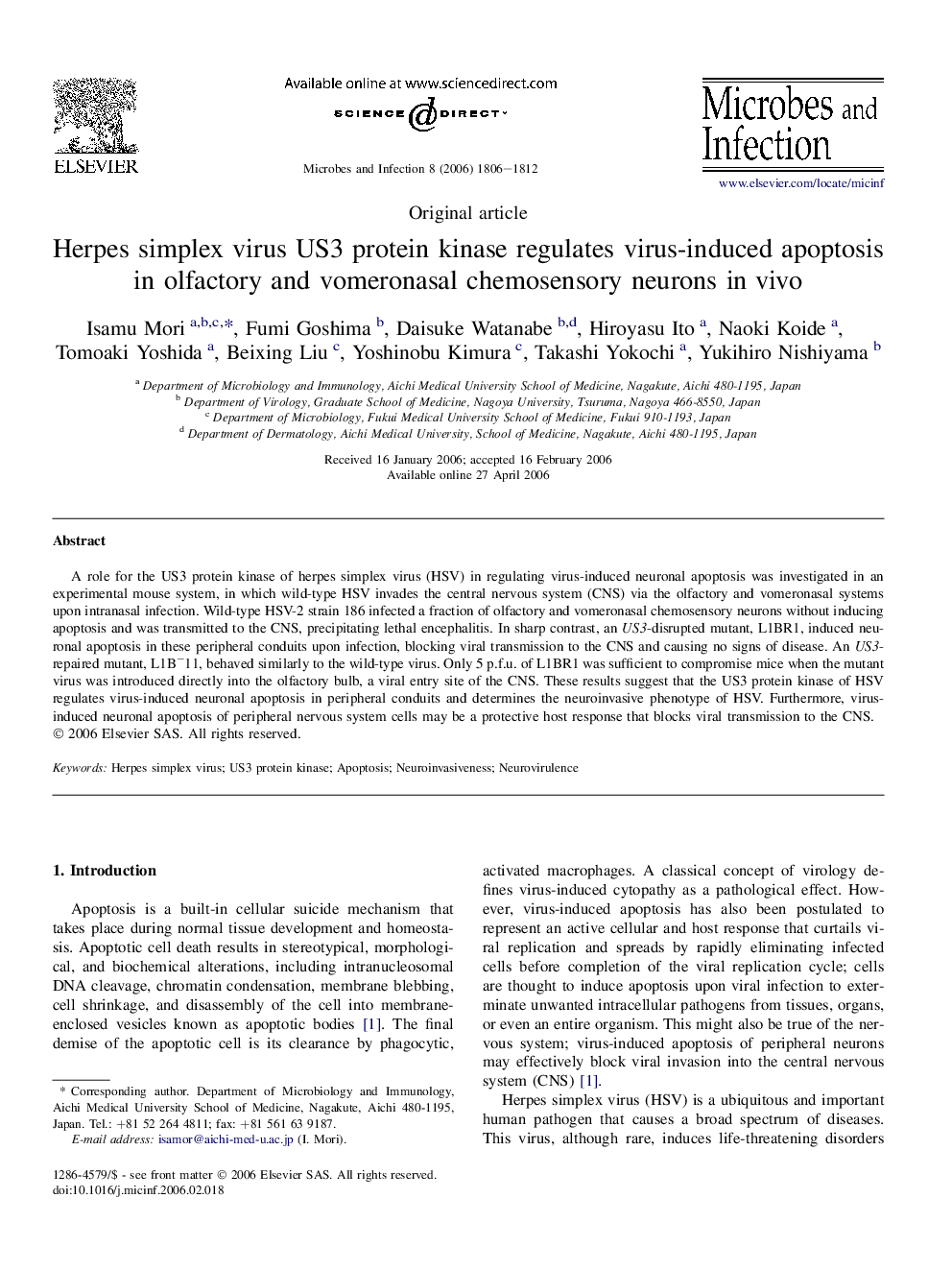| Article ID | Journal | Published Year | Pages | File Type |
|---|---|---|---|---|
| 3415856 | Microbes and Infection | 2006 | 7 Pages |
A role for the US3 protein kinase of herpes simplex virus (HSV) in regulating virus-induced neuronal apoptosis was investigated in an experimental mouse system, in which wild-type HSV invades the central nervous system (CNS) via the olfactory and vomeronasal systems upon intranasal infection. Wild-type HSV-2 strain 186 infected a fraction of olfactory and vomeronasal chemosensory neurons without inducing apoptosis and was transmitted to the CNS, precipitating lethal encephalitis. In sharp contrast, an US3-disrupted mutant, L1BR1, induced neuronal apoptosis in these peripheral conduits upon infection, blocking viral transmission to the CNS and causing no signs of disease. An US3-repaired mutant, L1B−11, behaved similarly to the wild-type virus. Only 5 p.f.u. of L1BR1 was sufficient to compromise mice when the mutant virus was introduced directly into the olfactory bulb, a viral entry site of the CNS. These results suggest that the US3 protein kinase of HSV regulates virus-induced neuronal apoptosis in peripheral conduits and determines the neuroinvasive phenotype of HSV. Furthermore, virus-induced neuronal apoptosis of peripheral nervous system cells may be a protective host response that blocks viral transmission to the CNS.
